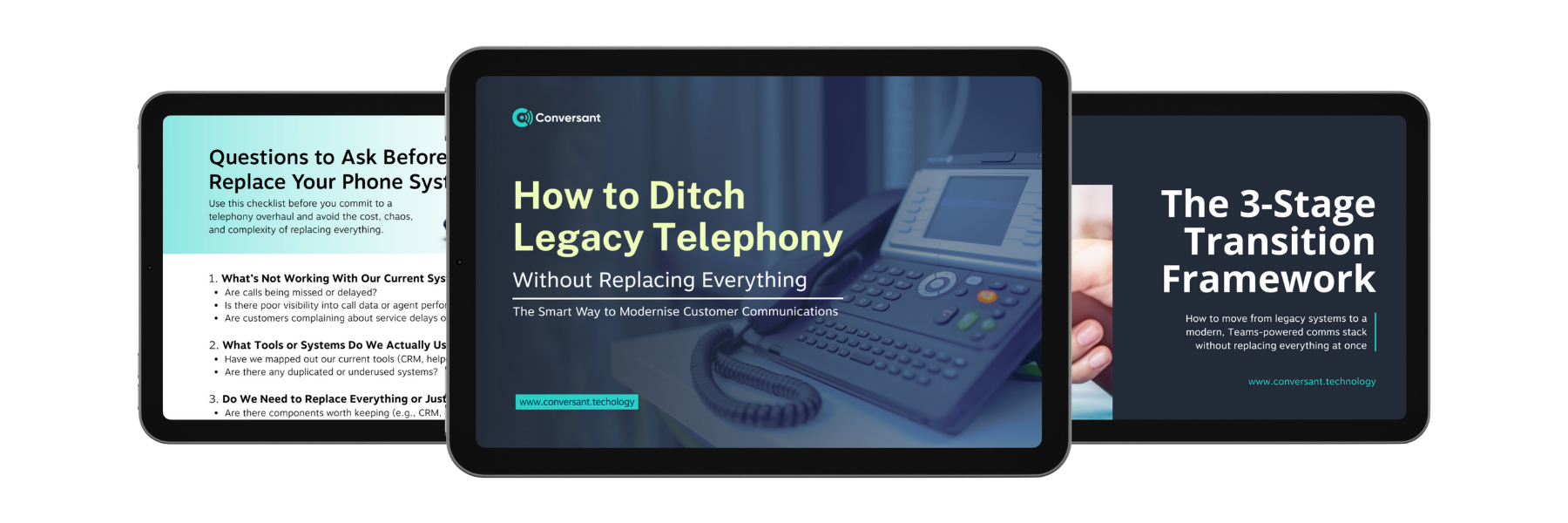
If your business is still using a traditional phone system, you could be wasting time, money, and opportunities every single day. Businesses that cling to outdated telephony systems are falling behind—both in operational efficiency and profitability. While legacy phone systems may seem “good enough,” they’re silently draining resources, stifling growth, and hindering productivity. Here’s why.
1. Hidden Maintenance Costs Add Up
Old telephony systems require ongoing maintenance and regular servicing. Parts become harder to find, engineers with the right skills are becoming rare, and service contracts are often costly. What may seem like minor upkeep quickly snowballs into a major expense. When compared to modern cloud-based communication platforms, the difference in total cost of ownership is stark.
2. Limited Scalability Slows You Down
Scaling a legacy system means investing in additional hardware, licences, and installation time. Whether you’re opening a new office, hiring remote staff, or experiencing rapid growth, your communication infrastructure should be able to adapt—fast. Legacy systems weren’t built for flexibility, making expansion slow, expensive, and disruptive.
3. Downtime and Disruption = Lost Revenue
Old PBX systems are more prone to failure, especially without round-the-clock monitoring or support. When they go down, so does your ability to serve customers, make sales calls, or provide support. Even short outages can lead to lost opportunities and reputational damage. Can your business afford that risk?
4. Inefficiency Wastes Employee Time
Modern communication platforms integrate voice, video, chat, and collaboration tools into one interface. Legacy systems don’t. This forces employees to switch between tools, waste time with manual processes, or struggle with poor call quality. That inefficiency adds up—stealing hours every week and reducing team productivity.
5. Lack of Insight Hurts Decision-Making
Legacy systems offer minimal analytics or visibility. You might know how many calls were made, but can you track resolution time, first-call success rate, or peak call volumes? Without that insight, you're flying blind. Cloud-based systems offer powerful reporting dashboards to help you make informed decisions and spot performance gaps quickly.
6. You’re Not Ready for Hybrid Work
In the age of flexible and remote work, your communication tools need to follow your team—not tie them to a desk. Legacy systems often require physical presence or workarounds to support hybrid teams. This limits collaboration, causes delays, and frustrates employees and customers alike.
7. Missed Opportunities for Automation and AI
Today’s telephony solutions can do more than just make calls. From automatic call routing and voicemail-to-email, to AI-powered transcription and sentiment analysis—modern platforms empower teams to work smarter. Legacy systems offer none of these capabilities, leaving you behind your competition.
Download our free 'Telephony Transition Toolkit' and discover how to move away from legacy systems at your own pace, without high costs or disruption.

